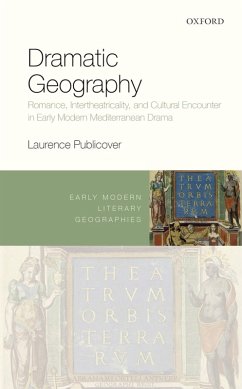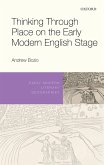Focusing on early modern plays which stage encounters between peoples of different cultures, this book asks how a sense of geographical location was created in early modern theatres that featured minimal scenery. While previous studies have stressed these plays' connections to a historical Mediterranean in which England was increasingly involved, this volume demonstrates how their dramatic geography was shaped through a literary and theatrical heritage. Reading canonical plays including The Merchant of Venice, The Jew of Malta, and The Tempest alongside lesser-known dramas such as Soliman and Perseda, Guy of Warwick, and The Travels of the Three English Brothers, Dramatic Geography illustrates how early modern dramatists staging foreign worlds drew upon a romance tradition dating back to the medieval period, and how they responded to one another's plays to create an 'intertheatrical geography'. These strategies shape the plays' wider meanings in important ways, and could only have operated within the theatrical environment peculiar to early modern London: one in which playwrights worked in close proximity, in one instance perhaps even living together while composing Mediterranean dramas, and one where they could expect audiences to respond to subtle generic and intertextual negotiations. In reassessing this group of plays, Laurence Publicover brings into conversation scholarship on theatre history, cultural encounter, and literary geography; the book also contributes to current debates in early modern studies regarding the nature of dramatic authorship, the relationship between genre and history, and the continuities that run between the fourteenth and seventeenth centuries.
Dieser Download kann aus rechtlichen Gründen nur mit Rechnungsadresse in A, B, BG, CY, CZ, D, DK, EW, E, FIN, F, GR, HR, H, IRL, I, LT, L, LR, M, NL, PL, P, R, S, SLO, SK ausgeliefert werden.









